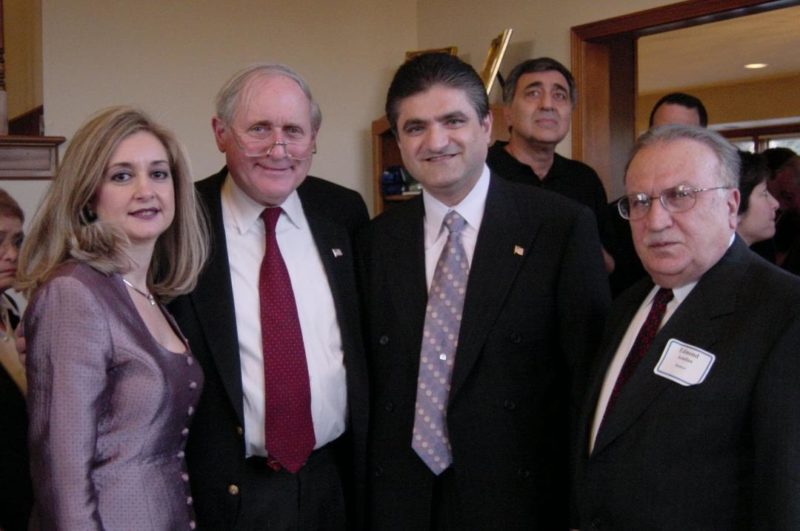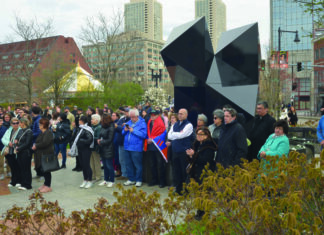DETROIT — Carl Levin (D-Michigan), one of the longest serving Senators in American history and a steadfast friend of the Armenian community, died on Thursday, July 29 from lung cancer. He was 87.
Levin came from the old school of public servants whose guiding principle was not ideology but integrity. Respected by colleagues and constituents alike on the right and the left, his re-election five times by the people of Michigan was a testament to the fact that ultimately, true dedicated public service and getting the job done matter more than divisive political issues. A strongly liberal Democrat, he gained the confidence of the majority of Michigan’s middle-of-the-road electorate and deep respect from both Democrats and Republicans who viewed his tenure as a United States Senator as model of how to serve in public office. He lived his life in a way that before being a Democrat, he was an American and a Michigander.
Born to a Jewish family in Detroit, Levin’s exceptionally strong support of Armenian issues was a mirror of the strong relationship between the Jewish and Armenian communities in Michigan. From the joint legislative push for a Holocaust and Armenian Genocide educational mandate in Michigan’s public schools to the community collaboration spearheaded by the late Fr. Diran Papazian, dean of Michigan’s Armenian clergy, and the martyred Rabbi Morris Adler from their respective Southfield-based congregations, the Jewish-Armenian friendship runs deep in the Metro Detroit area.
Levin was a man with deep ethnic roots who was loyal to the values instilled by immigrant grandparents. The Jewish community has referred to him as a “mensch,” the Yiddish word for “human” which similar to the Armenian expression “martgoutiun” (humanity), connotes integrity and coming through for friends in need. For Levin, the Armenians were counted among those friends. The Armenians who saw in him the embodiment of the best old-world values and who continually supported his re-election financially or through networking (the late captain of industry, Alex Manoogian, was a strong supporter), were the beneficiaries of his solid advocacy on Capitol Hill and in numerous large and small ways.
Elected to the Senate in 1979, his maiden speech on the legislative floor was on the Armenian Genocide, a fact that he used to mention in conversation throughout his career. The brotherhood he clearly felt with Armenians, as a people who had suffered a Holocaust as horrific as that under the Nazis, was always apparent. Fr. Garabed Kochakian, retired pastor of St. John’s Armenian Church in Southfield, MI, recalls that he often saw Levin in the airport when they were both travelling on business. “The minute he would see me, the conversation about the Genocide would come up,” Kochakian recalls. “Things that Turkey was doing and so on. He would always say ‘They’re still at it.’ It was something that was always on his mind. Seeing me and knowing me to be an Armenian clergyman, as a person carrying the same burden as his [Jewish] people, this would come to the surface.”
Levin’s relationship with the Armenian-American community was strengthened during his time as a Detroit City Council member before he was elected to national office, and as a Senator representing Michigan. This period coincided with a time of exemplary generosity of Armenian Americans for the betterment of Metro Detroit, including Alex and Marie Manoogian’s gifting of their home to the City of Detroit in the mid-1960s, Edward and Helen Mardigian’s major contributions to the University of Michigan-Dearborn resulting in the establishment of the Mardigian Library on campus in 1987, Richard and Jane Manoogian’s remarkable contributions to the Detroit Institute of Arts, which dedicated its American Art wing in honor of Richard Manoogian in 2007, and Alex and Marie Manoogian’s contributions to Wayne State University resulting in the establishment of Alex Manoogian Hall and its Ethnic Heritage Center in 1970.











